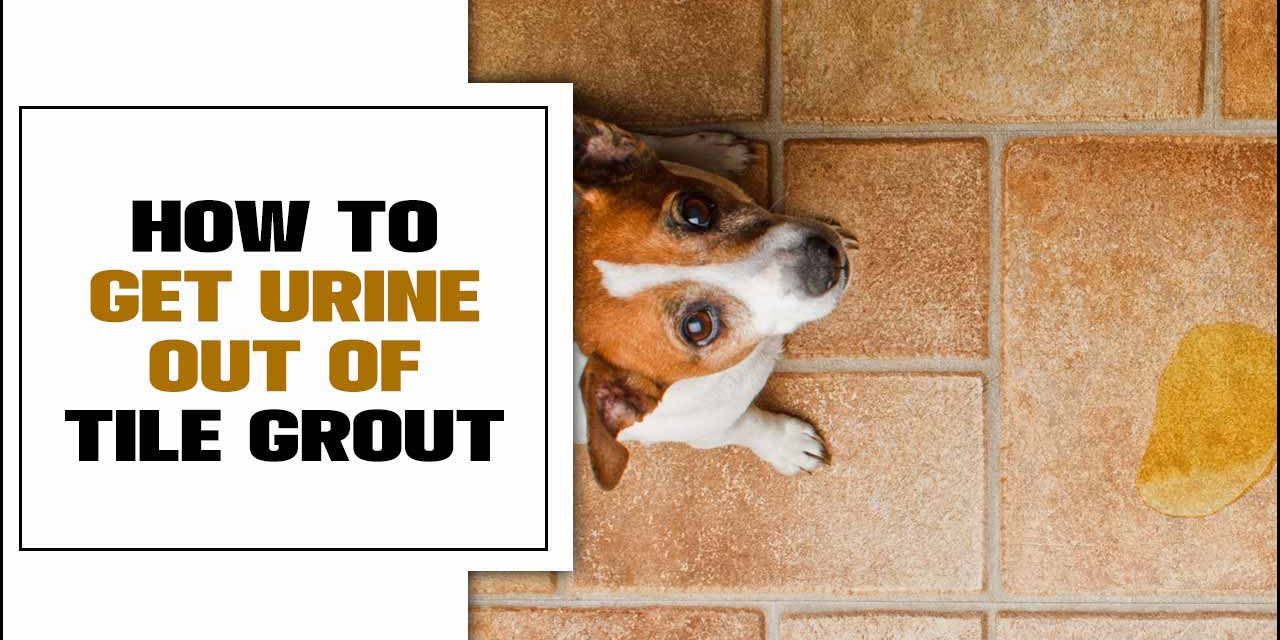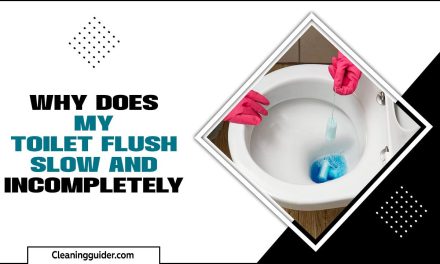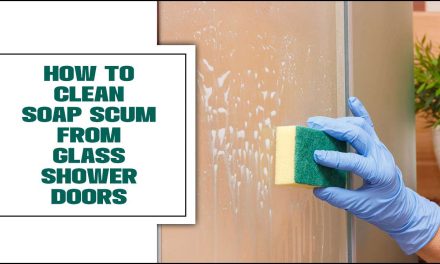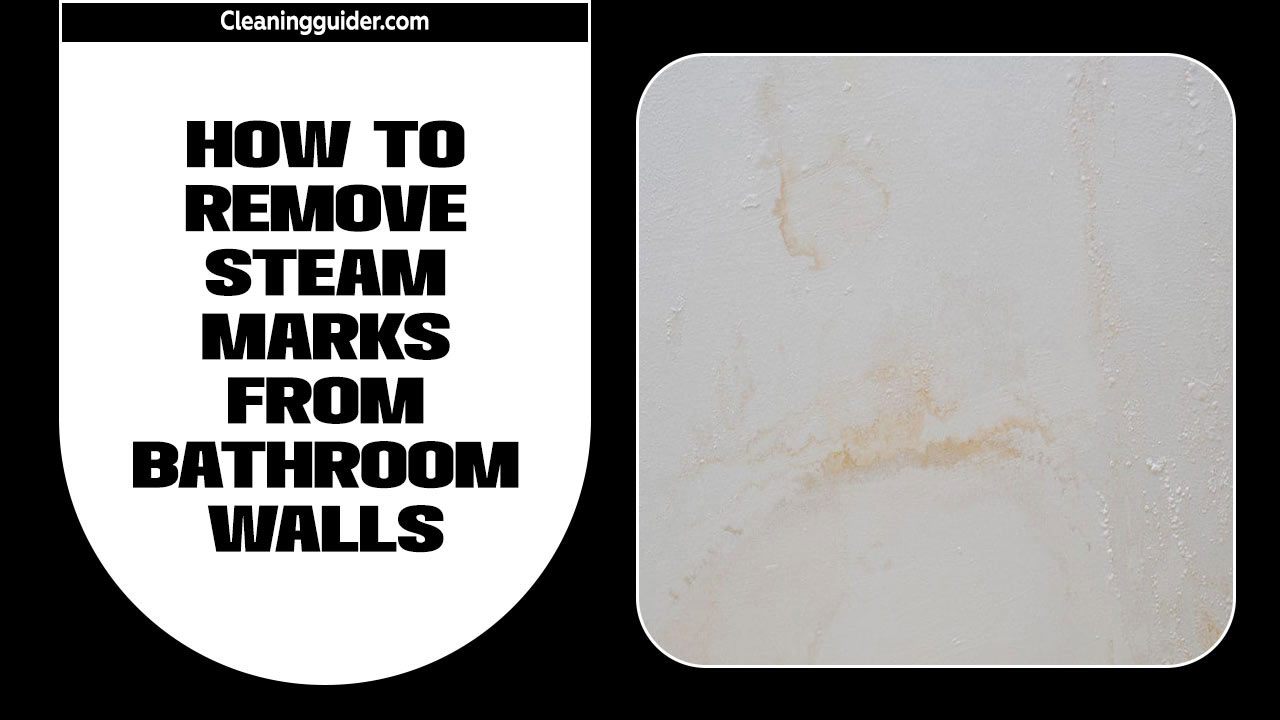Maintaining a clean and hygienic home is a top priority for most homeowners. However, accidental spills and mishaps are bound to happen, leaving behind stubborn stains that can be a nightmare to clean.
One such challenge that many homeowners face is getting urine out of tile grout. Whether it’s from a pet accident or a potty-training mishap, the strong odor and unsightly stains can be a source of frustration and embarrassment.
Here, we will cover the nature of tile grout and why it retains odor. We’ll also provide you with 7 effective tips on how to clean it up, from using strong cleaning solutions to scrubbing with a brush and even using enzyme cleaners. We’ll also discuss how to get urine out of tile grout & the role of hydrogen peroxide in grout cleaning, whether it’s safe for your grout, and if pet urine can cause permanent damage to your tile grout.
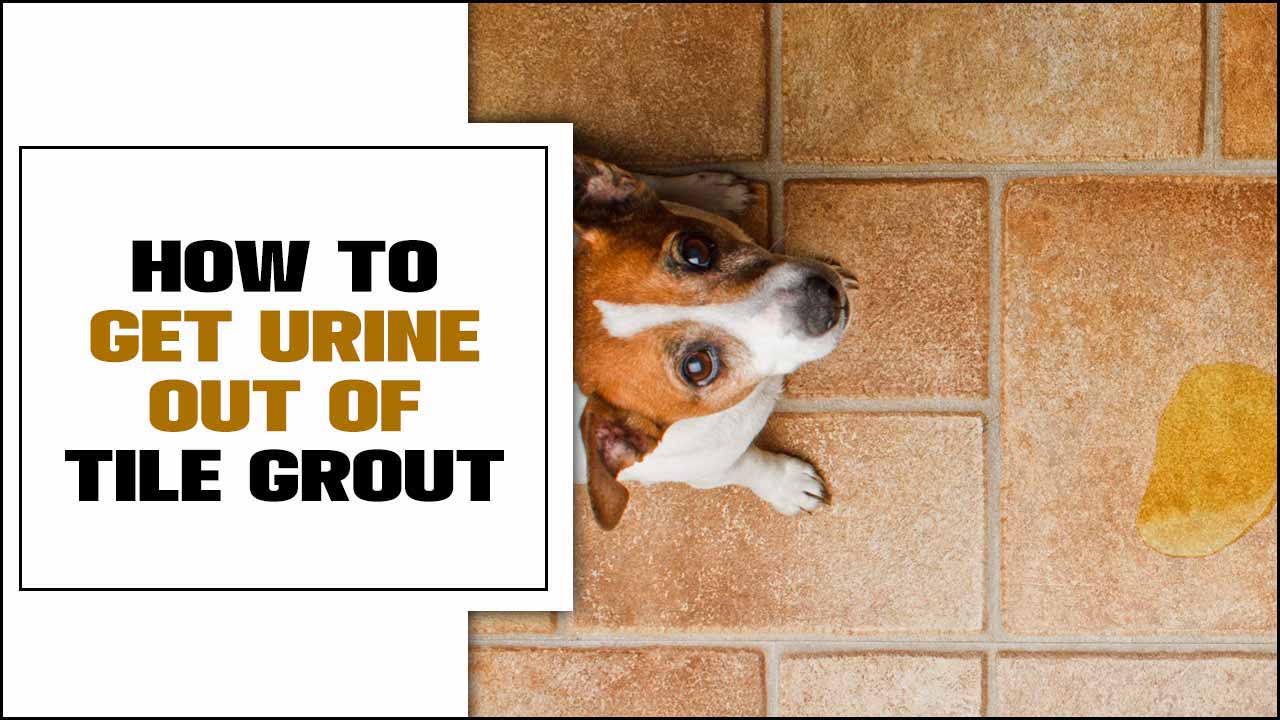
About The Nature Of Tile Grout
Grout, a porous material, readily absorbs liquids like urine, leading to stains and odors. Properly sealing the grout is essential to prevent urine absorption. Regular cleaning and maintenance are necessary to keep the grout clean and odor-free.
Understanding the nature of grout helps in effectively eliminating urine stains and odors. To tackle stubborn stains and unpleasant odors, consider using a commercial cleaner or a mixture of ammonia and water. Remember always to test any cleaning solution on a small, inconspicuous area first.
Why Does Grout Retain Odor?
Grout is a porous material, which means it can easily absorb liquids and odors. When urine seeps into the grout, it can become trapped in the tiny pores, leading to a lingering odor. Additionally, the urea in urine can break down into ammonia, which has a strong and unpleasant smell. This combination of absorption and chemical reactions is what causes grout to retain urine odor.
To effectively remove urine odor from grout, it is important to use cleaning solutions specifically designed for this purpose. These solutions can penetrate the pores of the grout and break down the urine particles, eliminating both the odor and any potential bacteria or stains.
How To Get Urine Out Of Tile Grout: 7 Effective Tips
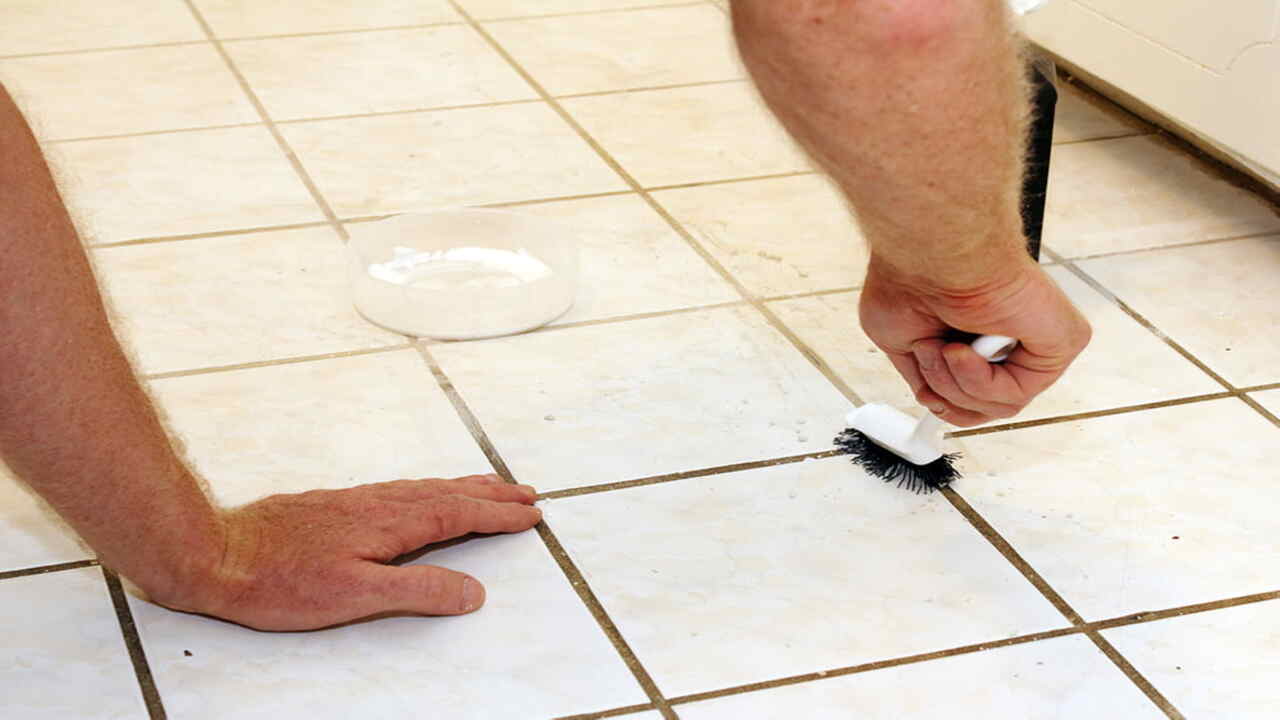
When dealing with urine stains in tile grout, it’s important to act quickly to prevent any long-term damage or lingering odors. Cleaning urine stains from tile grout can be a challenging task, but with the right techniques and products, it is possible to restore your grout to its original condition.
First, make sure to wear gloves and protective eyewear before starting the cleaning process. Begin by blotting up any excess urine using a clean cloth or paper towel. By following these tips, you can effectively remove urine stains from tile grout and restore its cleanliness and freshness. Here are seven effective tips for how to get urine out of tile grout:
1: Clean Urine Immediately
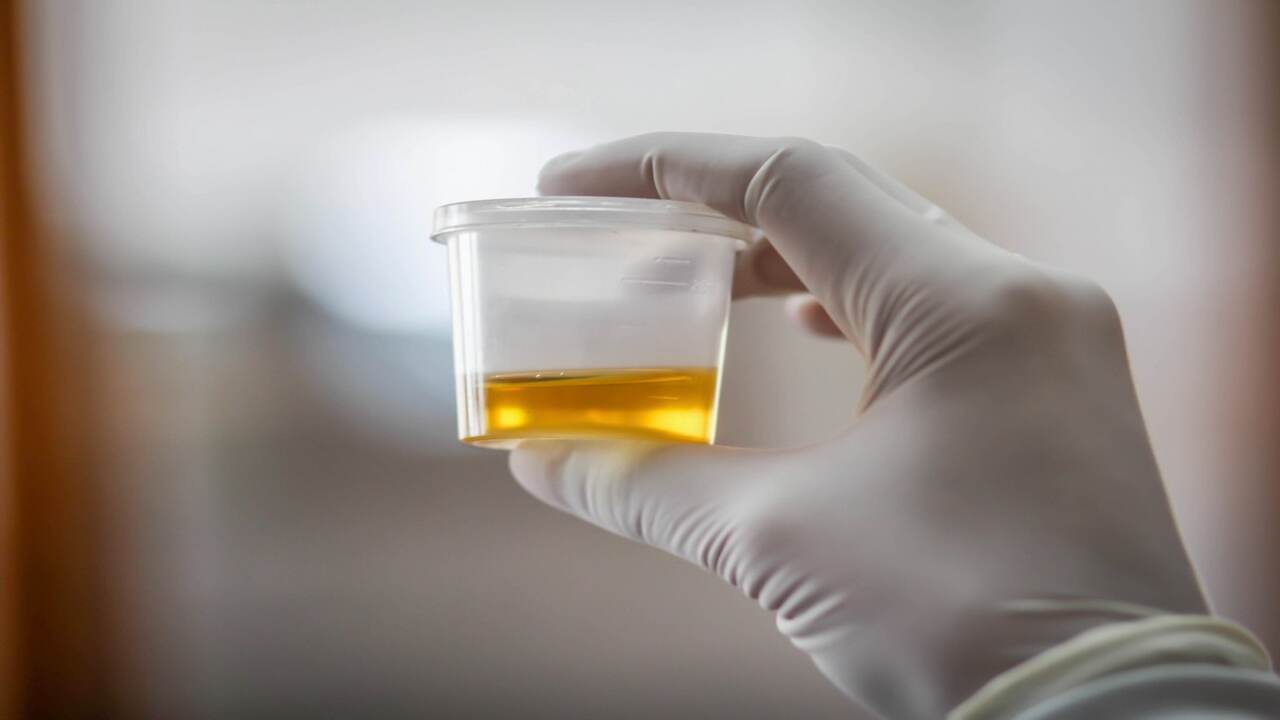
Cleaning up urine from tile grout promptly is crucial to prevent staining and odor. Begin by blotting up as much urine as possible using a paper towel or cloth, ensuring not to rub it into the grout. Rubbing can spread the stain and odor further. By acting fast and employing this first tip, you can minimize the likelihood of stubborn stains and unpleasant odors lingering in your grout.
2: Use A Strong Cleaning Solution
For effective urine stain removal from tile grout, you can create a potent cleaning solution. Mix warm water with a commercial cleaner or vinegar solution. Apply this mixture to the stained area and let it sit for a few minutes before scrubbing. This will help break down and remove the stains from the grout effectively. Remember to rinse the area thoroughly to ensure there is no cleaning residue left behind.
3: Scrub The Grout With A Brush
To remove urine stains from tile grout, grab an old toothbrush or a grout cleaning brush. Scrub the stained area in a circular motion to effectively lift and eliminate the unsightly marks. This method helps you get rid of stubborn stains caused by dog urine or any other pet stains. By using a scrubbing motion, you can ensure that the grout is thoroughly cleaned and free from any lingering urine smell.
4: Use A Steam Cleaner
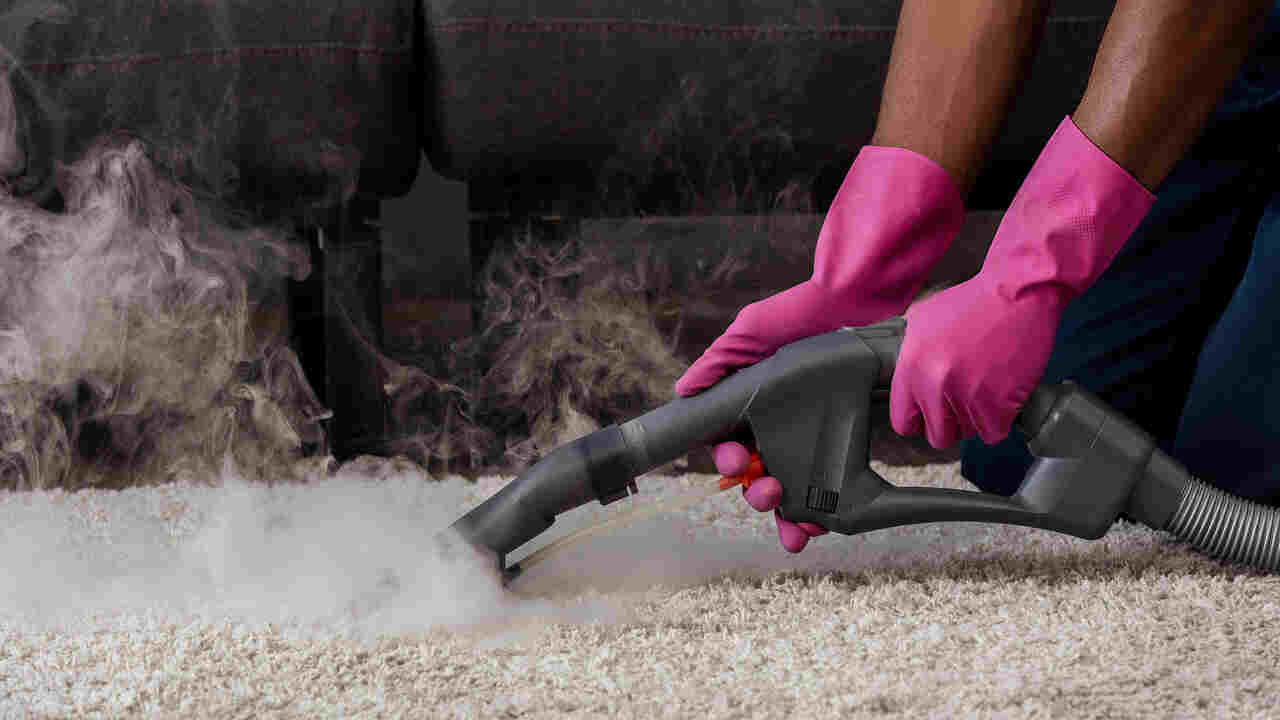
Steam cleaners are a great option for removing urine stains and odors from tile grout. Their high temperature effectively sanitizes the grout, eliminating bacteria in the process. Using a steam cleaner is not only chemical-free but also eco-friendly, making it a popular choice among homeowners. The steam penetrates deep into the grout, ensuring thorough cleaning of even the most stubborn stains. Plus, it saves time and effort compared to manual scrubbing.
5: Apply A Stain Remover
To effectively remove urine stains from tile grout, consider using a stain remover specifically formulated for grout. Look for a safe and effective option that won’t harm the tile or grout. Applying the stain remover directly to the stained areas and leaving it for the recommended amount of time allows the solution to penetrate and break down the urine residue. Use a scrub brush or an old toothbrush to agitate the stain remover and loosen the stubborn stains. Finally, rinse the area thoroughly with clean water to remove any remaining residue.
6: Use A Baking Soda And Vinegar Paste
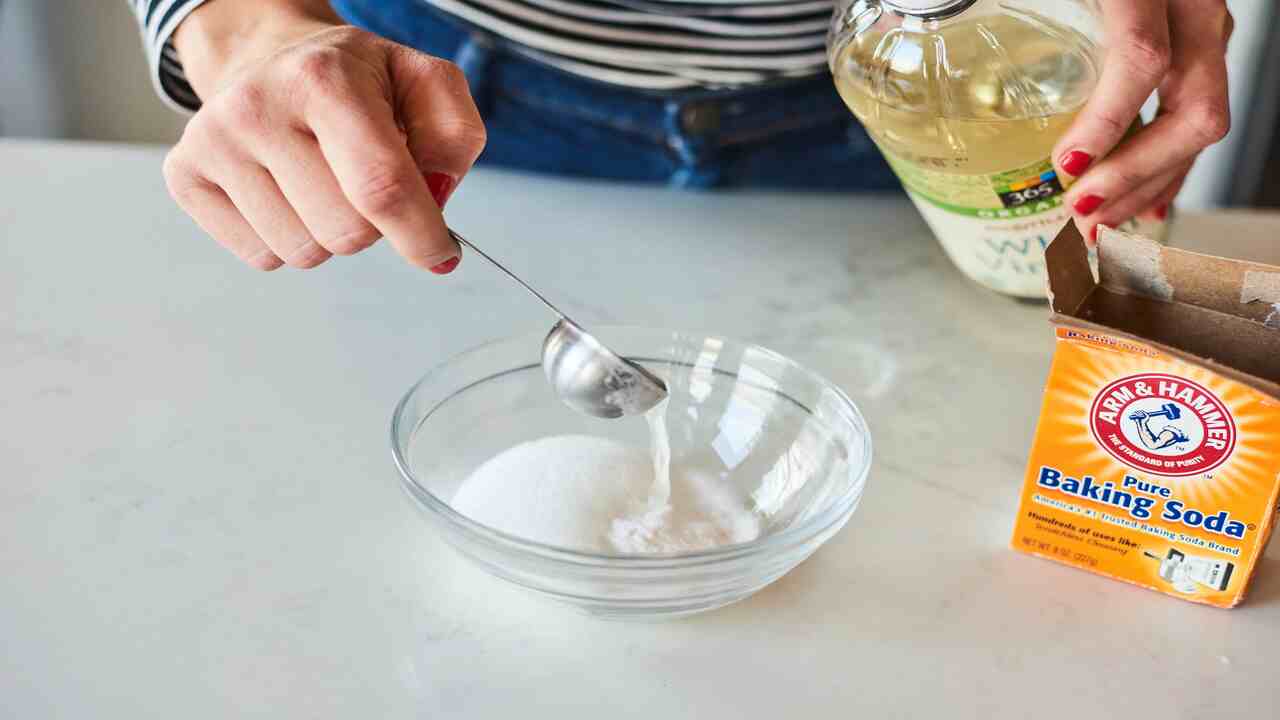
To effectively clean urine stains from tile grout, create a powerful grout cleaner by mixing baking soda and white vinegar to form a paste. Apply the paste onto the stained grout and let it sit for a minimum of 15 minutes.
Use an old toothbrush or a scrub brush to scrub the grout and remove the urine stains. Rinse the area with warm water to eliminate any residue. The combination of baking soda and vinegar breaks down urine odor and effectively removes stains.
7: Use An Enzyme Cleaner
An effective way to remove urine stains from tile grout is to use an enzyme cleaner. Enzyme cleaners are specifically designed to break down and eliminate organic stains, such as urine. When choosing an enzyme cleaner, make sure it is safe for use on grout.
Apply the enzyme cleaner to the stained grout and let it sit for the recommended amount of time. To remove the urine residue, use a scrub brush and agitate the cleaner. Finally, rinse the area thoroughly with clean water to ensure all remaining cleaner is removed.
Role Of Hydrogen Peroxide In Grout Cleaning
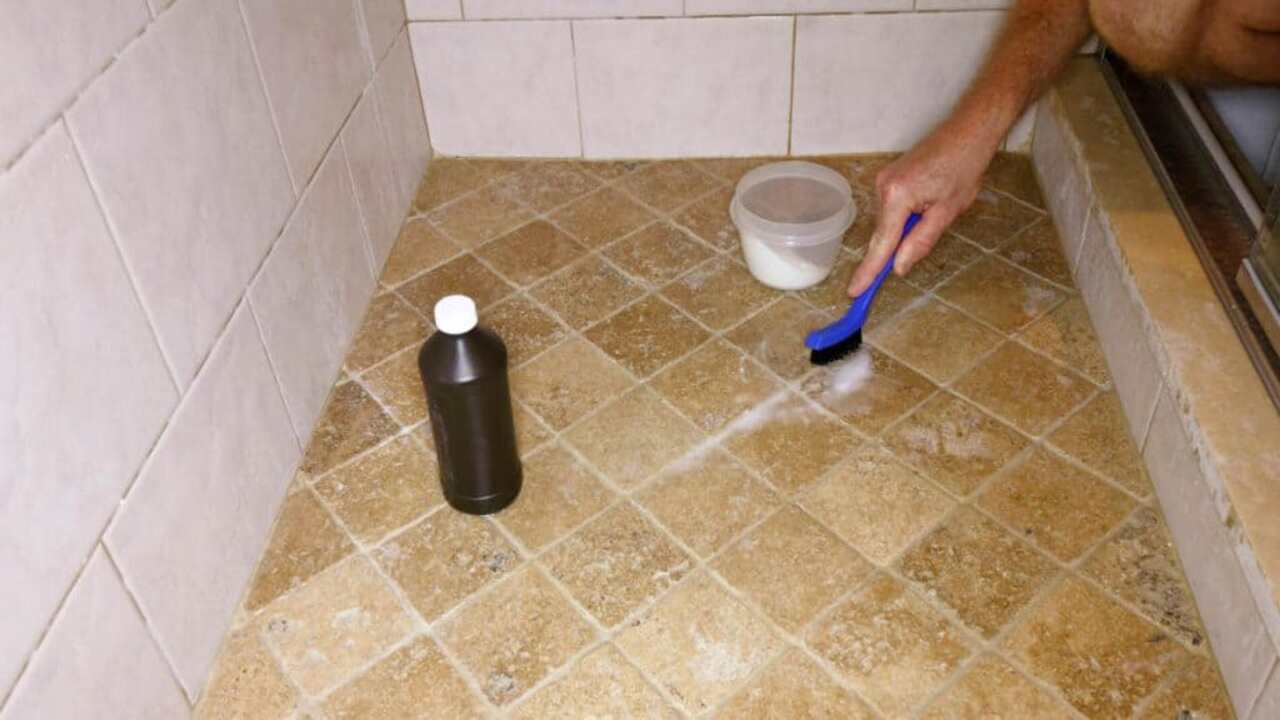
Hydrogen peroxide can be a powerful tool in cleaning urine stains from tile grout. Its chemical composition allows it to break down the compounds that cause the odor and discoloration associated with urine stains.
To use hydrogen peroxide for grout cleaning, start by mixing equal parts of hydrogen peroxide and water in a spray bottle. Spray the mixture onto the stained grout and let it sit for about 10 minutes to allow the peroxide to penetrate the stain. Then, scrub the grout with a brush or sponge to lift away the stain.
Rinse the area thoroughly with water and repeat the process if necessary. Hydrogen peroxide is a safe and effective option for removing urine stains from tile grout. Still, it’s always a good idea to test it on a small, inconspicuous area first to ensure it doesn’t cause any damage or discoloration.
Is Hydrogen Peroxide Safe For Your Grout?
Regarding getting urine out of tile grout, many people wonder if hydrogen peroxide is a safe option. The answer is yes! Hydrogen peroxide is a commonly used cleaning agent that can effectively remove stains and odor from grout. However, it’s important to use caution when using hydrogen peroxide on colored grout, as it may cause discoloration or fading.
Before applying hydrogen peroxide to your grout, test it in an inconspicuous area to ensure that it does not have any adverse effects. If you’re unsure about using hydrogen peroxide, there are alternative cleaning solutions available specifically designed for grout cleaning.
Enzyme Cleaners: An Effective Solution For Urine Removal?
Enzyme cleaners can be an effective solution for removing urine from tile grout. These cleaners contain enzymes that break down the organic compounds in urine, such as urea and uric acid. To use an enzyme cleaner, spray it onto the affected area and let it sit for a few minutes to allow the enzymes to work their magic.
Then, scrub the grout with a brush or sponge to remove any remaining stains or odors. It’s important to note that enzyme cleaners may need to be applied multiple times for stubborn stains, and it’s always a good idea to test the cleaner on a small, inconspicuous area of the grout before using it on the entire surface. With regular maintenance and cleaning, you can keep your tile grout looking clean and fresh.
Can Pet Urine Permanently Damage Your Tile Grout?
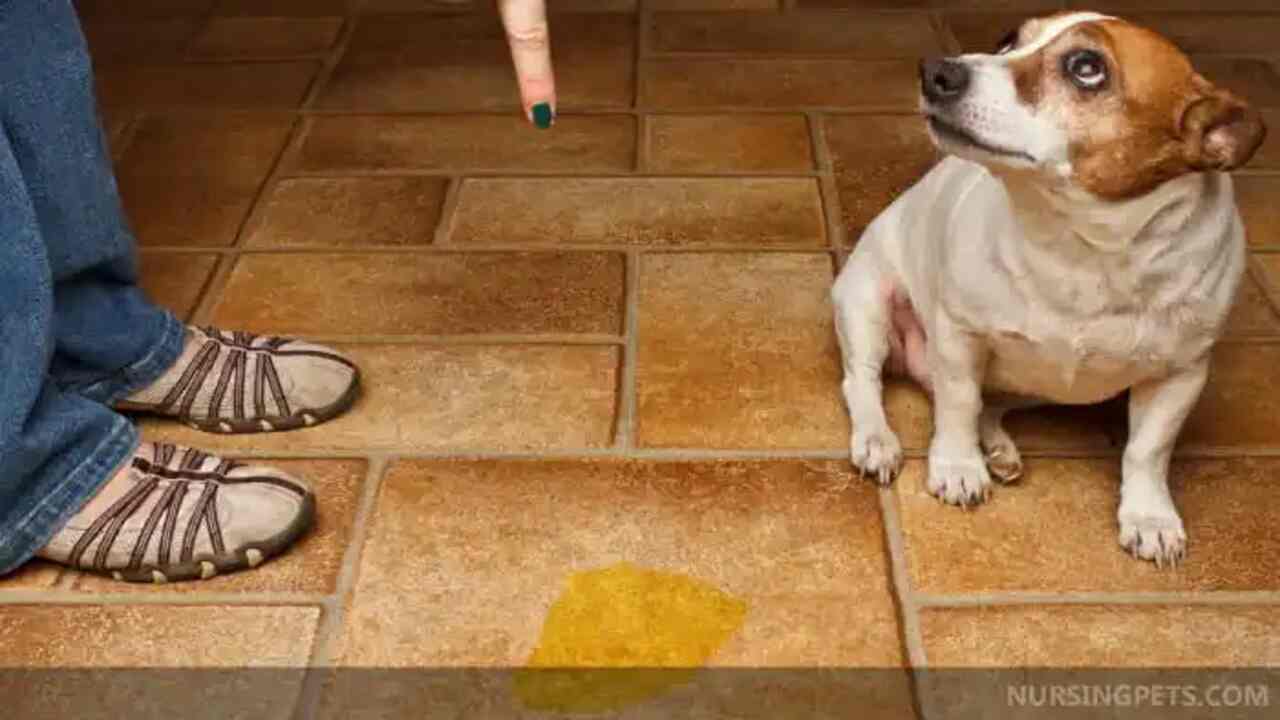
Pet urine can indeed cause permanent damage to tile grout if not properly addressed. The acidic nature of urine can eat away at the grout over time, leading to discoloration, staining, and even deterioration. If left untreated, the odor from pet urine can also become embedded in the grout, making it difficult to eliminate.
To prevent permanent damage, it is important to clean up pet urine as soon as possible. Start by blotting up any excess liquid with a paper towel or cloth. Then, mix a solution of equal parts water and vinegar and apply it to the affected area. Allow the solution to sit for a few minutes before scrubbing the grout with a brush or toothbrush.
Rinse thoroughly with water and repeat if necessary. For stubborn stains or odors, specialized grout cleaners or enzymatic cleaners designed for pet urine may be needed. Regular maintenance and sealing of tile grout can also help protect against damage from pet urine.
Conclusion
To effectively remove urine from tile grout, it is important to act quickly and use the right cleaning techniques. Whether you opt for strong cleaning solutions, scrubbing with a brush, steam cleaning, or using natural remedies like baking soda and vinegar, the key is to eliminate the odor-causing bacteria and prevent any damage to the grout.
Hydrogen peroxide can be an effective tool in grout cleaning, but it is essential to ensure its safety for your specific situation. Enzyme cleaners also offer a reliable solution for urine removal due to their ability to break down organic substances. Remember, if left untreated, pet urine can lead to permanent damage to your tile grout. We’ve discussed how to get urine out of tile grout.
Frequently Asked Questions
1.Does Grout Hold Urine?
Ans: Grout is a porous material that can absorb liquids, including urine. If left untreated, urine can seep into the grout and create a lingering odor. Promptly cleaning up urine from grout is crucial to prevent staining and odor. Regular grout sealing can also help prevent urine absorption and make cleaning easier.
2.How Do You Remove Old Urine From Tile?
Ans: To remove old urine from the tile, create a paste using hydrogen peroxide and baking soda. Apply the paste to the affected area, let it sit for 10-15 minutes, then scrub with a stiff-bristled brush and rinse with warm water. Repeat or use a specialized grout cleaner for persistent stains.
3.What Is The Best Tile Cleaner For Dog Pee?
Ans: Enzymatic cleaners, specifically designed for pet urine stains and odors, are the best tile cleaners for dog pee. Avoid using harsh chemicals or bleach that can damage your tiles. Before applying the cleaner to the entire stain, test it on a small area first.
4.What Is The Enzyme Cleaner For Human Urine?
Ans: Enzyme cleaners are a highly effective solution for removing human urine from tile grout. These cleaners contain enzymes that break down the organic compounds present in urine, eliminating both the odor and stain. Popular enzyme cleaners for human urine include Rocco & Roxie Professional Strength Stain & Odor Eliminator and Nature’s Miracle Urine Destroyer.
5.What Is The Best Way To Clean Urine Out Of Tile Grout?
Ans: To effectively clean urine out of tile grout, start by blotting up as much urine as possible with paper towels or a clean cloth. Then, mix equal parts water and white vinegar and apply it to the affected area. Scrub the grout with a stiff-bristled brush, rinse with water, and dry thoroughly.

